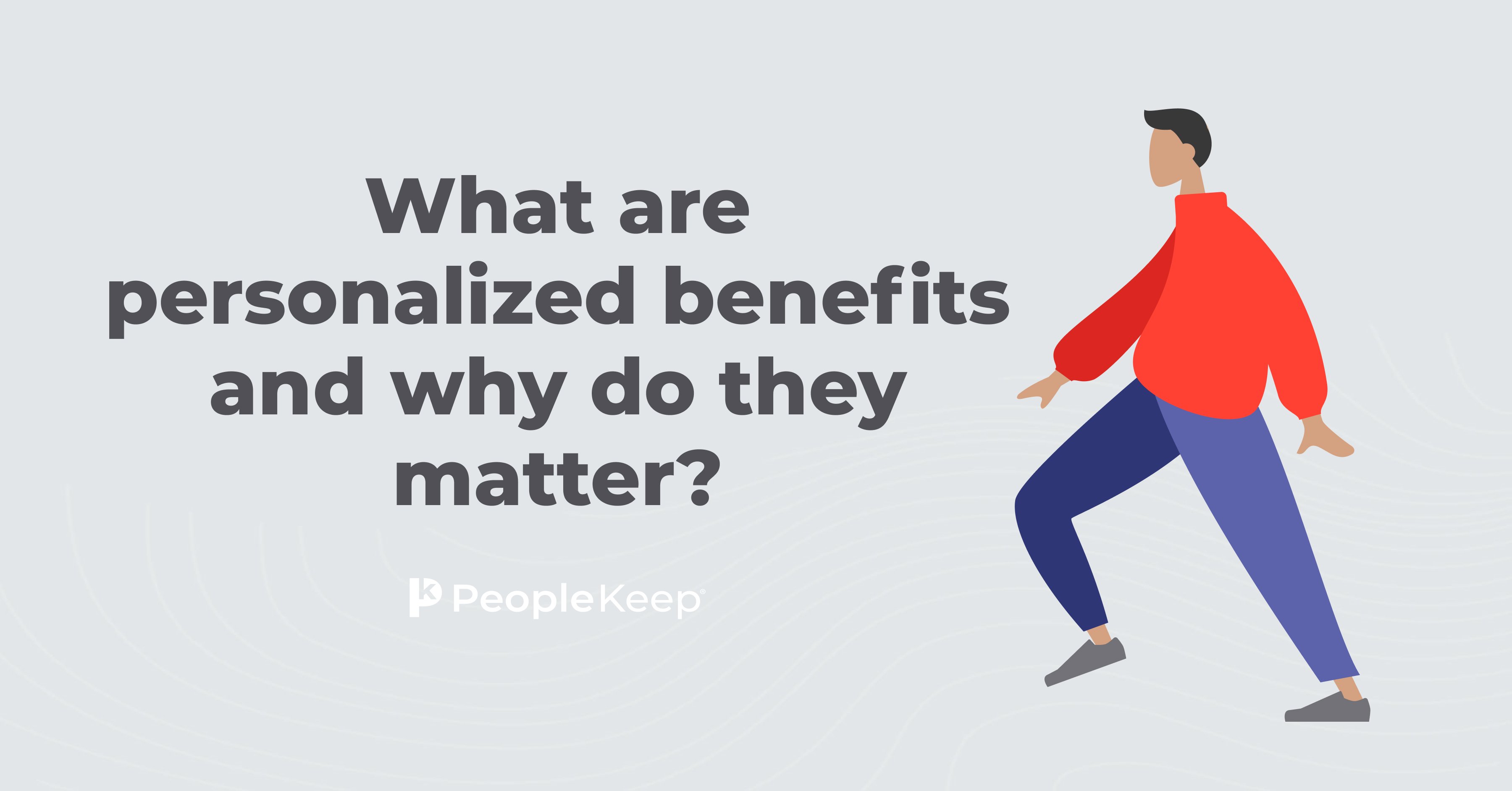Should you offer benefits to a 1099 employee?
By Chase Charaba on October 31, 2024 at 8:00 AM
The gig economy has grown significantly in recent years. More workers are now being classified as independent contractors. This change redefines the traditional employer-employee relationship and raises questions about the obligations and benefits a business should provide.
While 1099 employees benefit from flexibility and independence, the lack of benefits employers usually provide to these individuals versus their W-2 workers can pose a challenge for employers looking to attract and keep skilled professionals.
In this article, we'll look at what to consider before you decide to offer benefits to your 1099 employees.
In this blog post, you'll learn the following:
- What makes a 1099 worker different from a standard employee.
- How employee benefits apply to these types of workers.
- What benefits you can offer 1099 contractors.
What is a 1099 employee?
Despite being commonly referred to as “employees,” 1099 workers are actually independent contractors. The term 1099 employee comes from the Internal Revenue Service's Form 1099. Independent contractors fill out this form to report their annual earnings.
The IRS also considers self-employed individuals and sole proprietors as 1099 employees.
Contractors are typically short-term workers. Businesses hire them for specific tasks or projects, which can be long-term. But contract workers won't stay with the company after they've finished the projects.
Providing workers with tax form 1099 or excluding them from payroll isn't enough to make them 1099 employees. Organizations must prove that the worker is free from the control of the organization and was independently established as a freelancer or sole proprietor.
Contract workers are responsible for providing the equipment and supplies they need to do the work. Self-employed individuals have more flexibility in their schedules, how they work, where they work, and who they work for than regular W-2 employees. They are also responsible for their own self-employment tax and income tax withholding.
How do I know if my employee is an independent contractor?
The Fair Labor Standards Act (FLSA) established different tests to help organizations determine if their workers are employees or independent contractors.
You must correctly identify whether your workers are employees or independent contractors. If you don’t know whether a worker is an employee or a contractor, you can file Form SS-8 with the IRS so that they can determine the worker's official status.
Ultimately, it comes down to the type of relationship you have with your workers. For example, do you control your workers' hours and locations, or is that up to them? If you control these factors, your worker is likely a W-2 employee. One of the best ways to ensure that your workers are considered 1099 employees is to sign a contract when you hire them.
Hiring a 1099 worker as a small business can help you save money long-term and acquire better talent for specific projects rather than employing someone full-time. To hire contract talent, you'll need to offer competitive benefits.
Are 1099 employee benefits required?
Organizations aren't required to provide benefits to self-employed workers like contractors. However, you can do so in some cases as long as you follow regulations and applicable state laws. For example, 1099 employees have to declare any benefits as taxable income.
Employers aren't required to pay health insurance premiums for their 1099 employees, even if they're offered a group health plan. Contractors can deduct these health insurance premiums on their tax returns and any business expenses.
Historically, most organizations chose not to offer their 1099 employees any benefits. But, this is starting to change due to a tight labor market and a need for highly specialized talent.
Why offer benefits to 1099 workers?
With the growing gig economy, more contractors and freelancers are looking for work. Compared to regular employees, these gig workers are often highly efficient and have specialized skills in their fields.
Your organization needs to offer competitive employee benefits to tap into this independent pool of talent. Otherwise, you'll lose out on top talent to your competitors.
Self-employed independent workers can also request certain employee benefits, such as paid travel expenses or health insurance, when negotiating their contract with your organization.
So, what benefits are most appealing to contractors? We'll explain a few of the top benefits available to 1099 employees.
What benefits can I offer 1099 employees?
There are many benefit options available for 1099 employees. Some of these can take the form of more traditional employee benefits, while others are additional perks that won't necessarily cost your organization.
Some of the most common benefits available to 1099 workers are:
- 401(k) and retirement plans
- Health benefits, including group health insurance and health stipends
- Travel benefits and mileage reimbursement
- Fuel card
- Uniforms and equipment
- Remote work benefits
- Educational benefits
- Wellness benefits
- Corporate discounts
We'll look at a few of these in more detail in the sections below.
Retirement benefits for 1099 workers
There are many retirement benefit options for the self-employed, including the following:
- Simplified employee pension (SEP)
- 401(k) plans
- Savings incentive match plans for employees (SIMPLE IRA)
- Money purchase plans
SEPs1 are one of the most common retirement savings plan options for 1099 workers. Contractors can contribute up to $70,000 annually2 for 2025, up from $69,000 in 2024. To establish a SEP, complete Form 5305-SEP from the IRS or use a plan offered by a bank or other institution. Contractors can then set up a SEP-IRA.
Contractors can also set up their own individual 401(k) plan3 by contributing up to 25% of their net earnings up to $70,000 in 2025. If they’re 50 or older, they can contribute up to $77,500. This works the same way as an employer-sponsored 401(k) plan.
There's also a SIMPLE IRA plan available for contractors. Workers can set up a SIMPLE IRA between January 1 and October 1. They can complete Form 5305-SIMPLE or Form 3504-SIMPLE and open an IRA through a bank or financial institution.
Employers can contribute to a 1099 employee's SEP or SIMPLE IRA. With a SIMPLE IRA, employers can contribute 2% of their employee's compensation up to $345,000. They can also match employee contributions up to 3% of their compensation.
Health insurance options for 1099 employees
A health benefit is one of the most popular benefit options for 1099 employees. While contractors have the opportunity to purchase self-employed health insurance, offering a health benefit can be advantageous. You have a few health insurance options if you want to give your contractors health coverage.
Group health insurance
One of the most common questions business owners have regarding employee benefits is, "Can I offer group health coverage to an independent contractor?"
Yes, you can offer health insurance coverage to 1099 employees. Employers can offer independent contractors the same group health insurance plan as their full-time employees. If you have many 1099 employees, this can help you increase your group health plan headcount and decrease your health insurance premium costs per employee. Just keep in mind that some group health insurance providers won't allow you to include contractors in your group policy.
If your insurance company doesn't allow you to add 1099 employees to your health insurance plan, there are plenty of alternative health benefit options.
Health reimbursement arrangement (HRA)
A health reimbursement arrangement (HRA) is an excellent alternative to group coverage for your W-2 employees. These tax-free reimbursements give your employees the freedom to choose what healthcare expenses they want to have reimbursed. This includes individual health insurance premiums and eligible medical expenses.
However, your 1099 employees can’t participate in the benefit.
Health stipend
You can also provide your 1099 employees with a health stipend benefit. With an employee stipend for healthcare, you can give individual contractors money for their medical expenses up to your set monthly allowance. With a taxable health stipend, your contractors must report their allowances as income on their tax returns.
A health stipend allows your independent contractors to purchase their own individual health insurance plan and out-of-pocket expenses. This gives them the flexibility they desire while enabling them to remain independent.
Health stipends can also benefit your W-2 employees who receive premium tax credits, as they'll be able to take advantage of both the health stipend and their federal tax credits.
Wellness benefits
Wellness benefits aren't the same as health benefits. Instead of focusing on healthcare, a wellness benefit supports employees' physical and mental well-being, allowing them to focus more and increase productivity in the workplace.
With a wellness stipend, you can offer all of your employees, both W-2 and self-employed contractors, a monthly allowance for their wellness expenses. This includes money for gym memberships, meditation and sleep apps, yoga classes, and more.
Conclusion
Offering benefits to 1099 employees is a tough decision that can affect morale, productivity, and even your bottom line. Although 1099 employee benefits aren't required, they can help your organization attract and retain high-performing workers, even in competitive labor markets.
This blog article was originally published on April 6, 2022. It was last updated on October 25, 2024.
Check out more resources
See these related articles

Five tips to start offering employees health benefits
Learn five essential tips for offering health plans for employees. Discover how to choose the right benefits to attract and retain top talent.

Health insurance for employees in multiple states
This blog shows you four ways to offer a health benefit to your employees in multiple states so you can support your workers regardless of their location.

What are personalized benefits and why do they matter?
Personalized benefits are the key to attracting and retaining top talent. Find out why they matter and how you can offer them to your employees.



